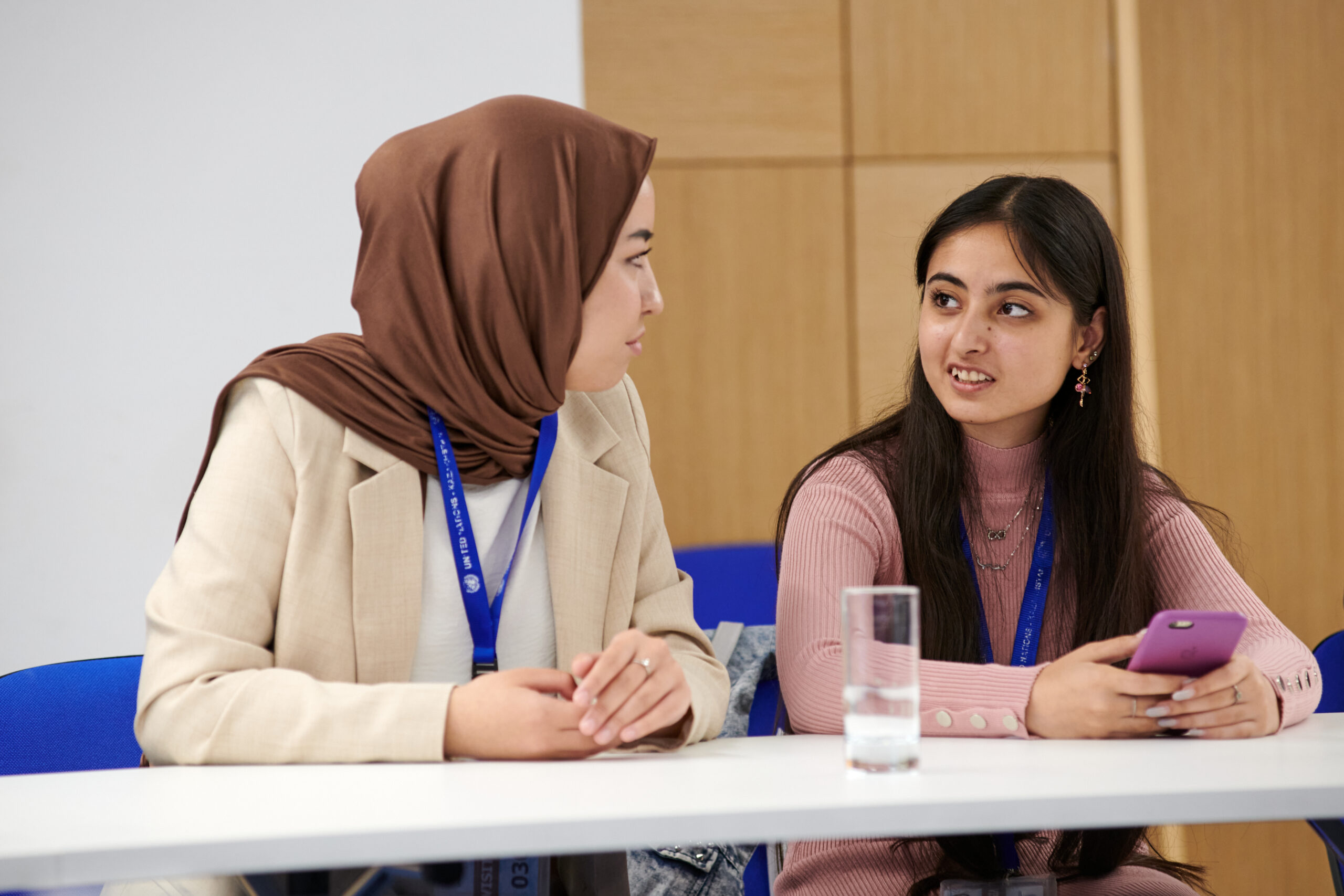Tabasum, a 20-year-old Afghan refugee student at Kazakh-Russian Medical University in Almaty, wishes to become a doctor since childhood. She recalls, “When I was in the 6th grade and began studying biology, I got a strong interest in understanding how the human body works. Ever since then, my ambition has been to help sick people.”
Tabasum is enjoying her studies and is happy that her dream of becoming a doctor can come true. This opportunity is particularly special for her – as a refugee, the path to obtaining higher education is not easy.
According to the 2023 UNHCR Refugee Education Report, as refugee youth climb the education ladder, the more challenging it becomes to enroll. Gross enrollment rates for refugees (excluding those from Ukraine) are at 38% for pre-primary, 65% for primary, 41% for secondary, and a mere 6% for tertiary education. At all levels, refugee enrollment falls significantly behind national averages.
In Kazakhstan, all refugees have access to both public and private tertiary education, with admission criteria equal to those for nationals. However, refugees are not able to compete for State scholarships, which are exclusively available to citizens.

As Tabasum’s parents could not afford her university fees, during her final year at secondary school, Tabasum sought advice from UNHCR partner, the Red Crescent Society of Kazakhstan, regarding her future studies, and was advised to apply for a DAFI scholarship programme.
The DAFI (Albert Einstein German Academic Refugee Initiative) scholarship programme offers financial support to qualified refugee youth, covering tuition fees and monthly stipends for higher and technical education. UNHCR introduced DAFI in Kazakhstan in 2021 and, since then, 21 refugees have been able to enjoy education in Kazakhstani universities and tertiary education institutions thanks to the programme.
As a refugee, Tabasum has learned to navigate difficulties from an early age. Her family was forced to flee from Afghanistan to Kazakhstan when she was three years old, seeking a safe life here.
“We are grateful for the warm reception we received here and that we can make Kazakhstan our home. Learning the language was challenging, but through school and interaction with peers, we managed to do it.”
While preserving their native language and traditions, Tabasum and her family have embraced Kazakh culture and traditions. “We keep our mother tongue, and we celebrate our holidays, such as Nowryz, which is also observed in Kazakhstan. It’s important to preserve these traditions passed down by our ancestors. At the same time, we actively participate in events related to Kazakh culture, which we find just as rich as Afghan culture. We really like Kazakh traditions and customs; they are fascinating and beautiful.”
Ensuring access to higher education is crucial for refugee youth in planning their future. The high cost of tuition and the absence of scholarship opportunities have been major obstacles preventing many from pursuing higher education which, in Kazakhstan, is a key requirement for obtaining professional employment.
To address this issue, in the run-up to the Global Refugee Forum 2023, Kazakhstan has pledged to introduce a refugee quota for its higher education scholarship programme for foreign students. Once implemented, this pledge will should substantively ease refugee youth’s access to higher education.
After more than 15 years of living in Kazakhstan, Tabasum feels that the country is her second home. She aspires to become a surgeon, find a job, and contribute to the well-being of society. “The DAFI program has changed my life. I am now a student, I have a scholarship, which is very helpful for my studies and daily life.”
Share on Facebook Share on Twitter